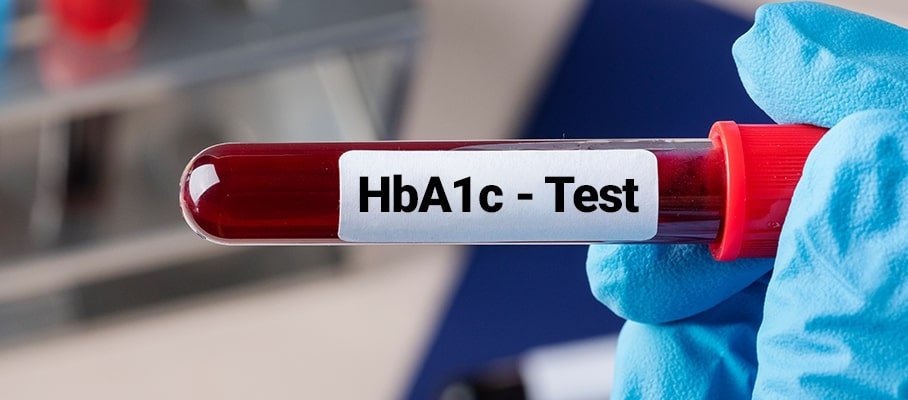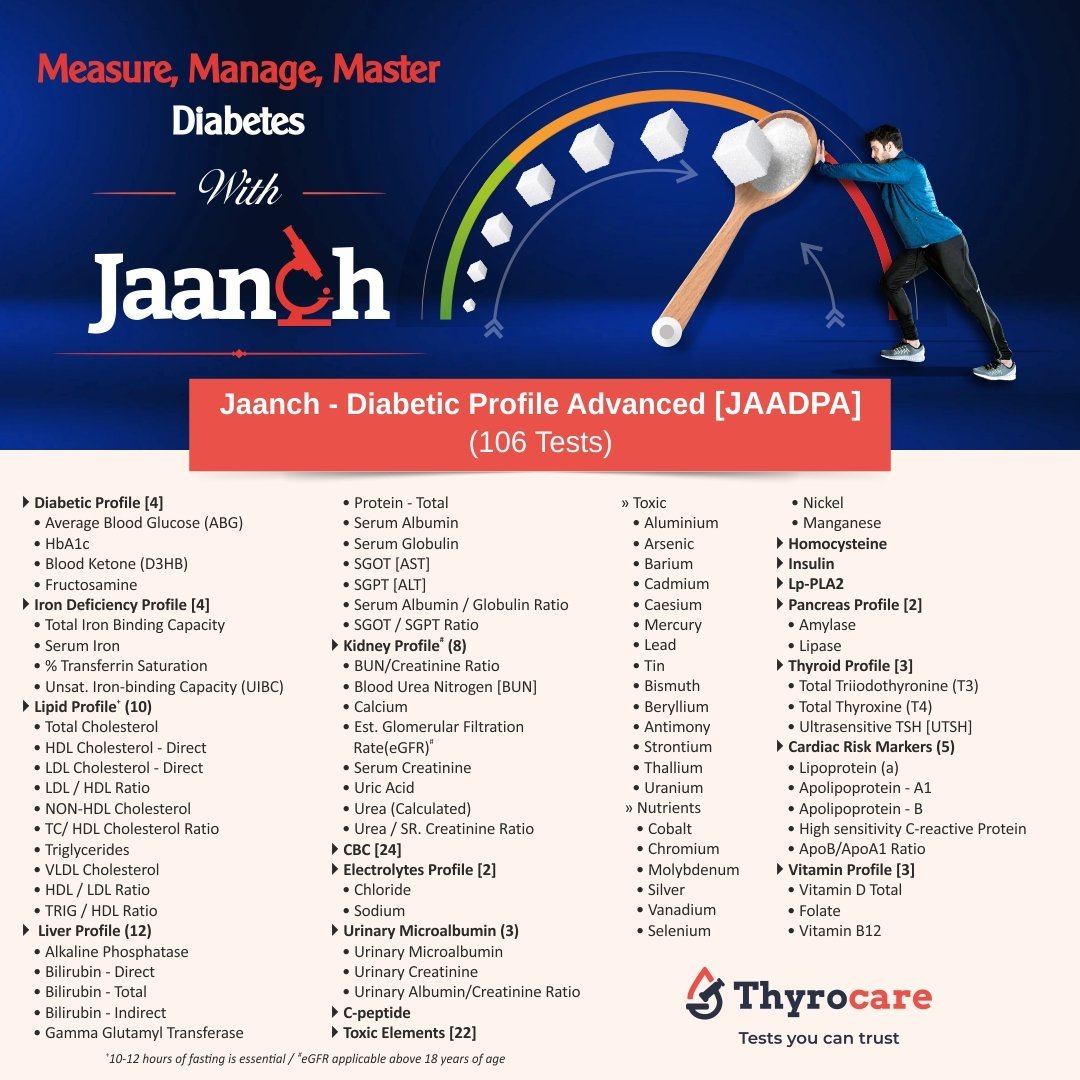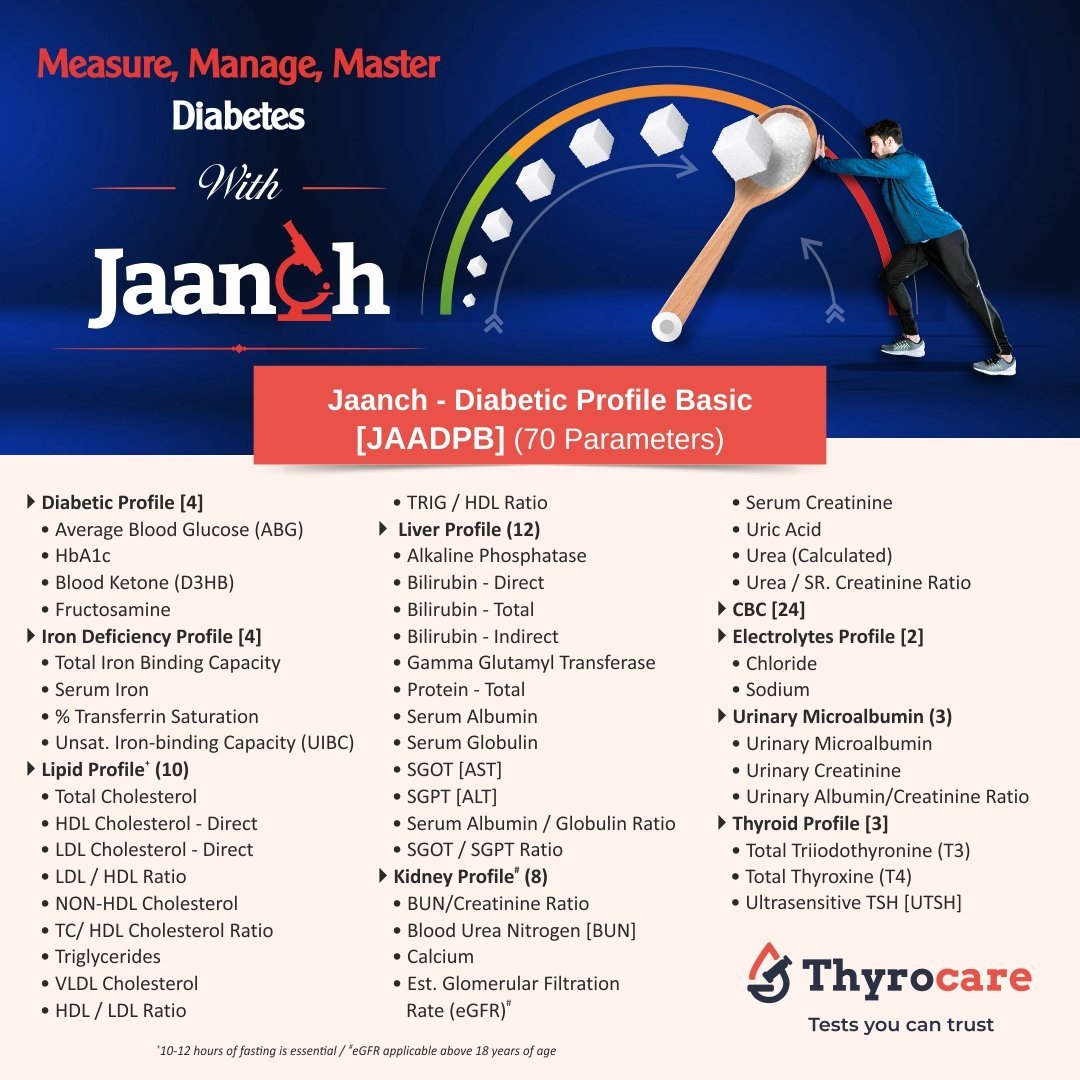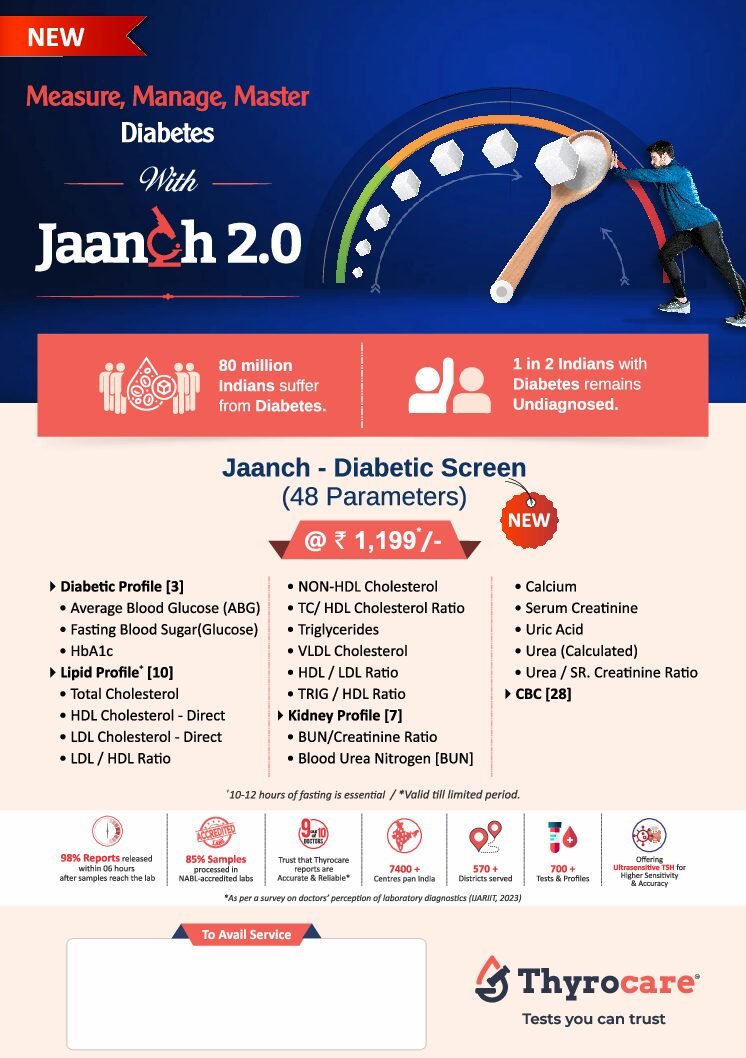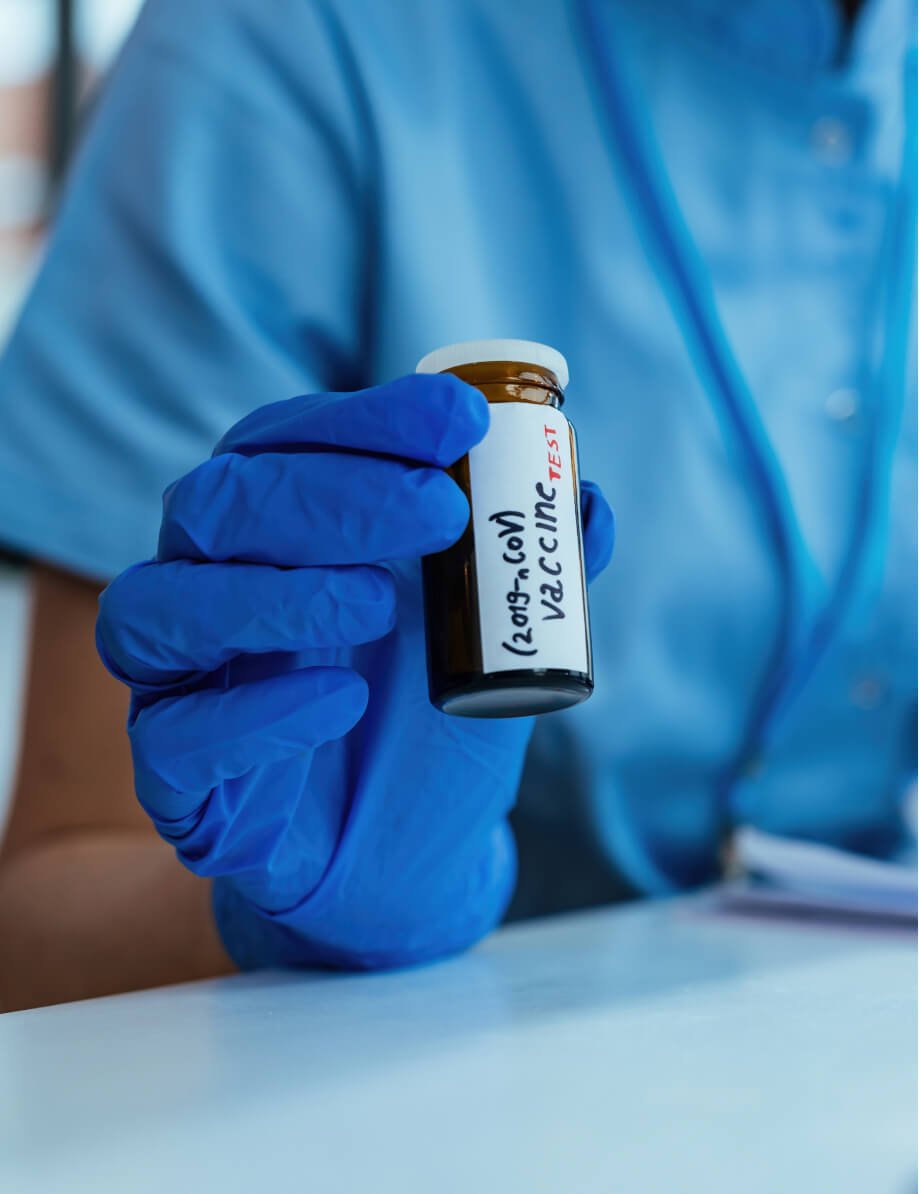- Thyrocare_AN
- April 15, 2024
- Diabetes
- 0 Comments

HbA1c Test for Diabetes: Importance and Results
Diabetes has become a global health crisis. According to the International Diabetes Federation, as of 2021, 10.5% of the adult population (20–79 years) had diabetes, with almost half of this population unaware of their condition. Without proper management, diabetes can lead to severe complications, including blindness, heart disease, nerve damage, and kidney failure. The key to controlling diabetes is consistently monitoring blood sugar levels using tests such as the HbA1c test.
HbA1c, short for glycated hemoglobin, forms when hemoglobin combines with glucose in the blood, becoming ‘glycated.’ The HbA1c test provides both patients and doctors with critical information about how diabetes is being managed while also serving as a key diagnostic tool.
Read on to learn more about what the HbA1c test is, when it’s conducted, why it’s important for diabetes care, the HbA1c test price, and what the results indicate.
What is the HbA1c test?
Haemoglobin is the protein in red blood cells that carries oxygen through the body. When blood glucose levels are high, glucose molecules attach to haemoglobin, forming what is called glycated haemoglobin or HbA1c. The higher someone’s blood glucose levels are over time, the more glucose attaches to the haemoglobin.
The HbA1c test is a simple blood test that evaluates the average amount of glucose in the blood over the past 2-3 months.
This test serves the dual purpose of screening for or diagnosing:
1. Prediabetes: An individual is prediabetic if their blood glucose levels are higher than normal, but not high enough for a diagnosis.
2. Type 2 Diabetes: An individual has type 2 diabetes if their blood glucose levels are high enough to fall in the established range.
For diabetic patients, the HbA1c level is crucial, as a higher level indicates a greater risk of developing diabetic complications. The test is also useful for monitoring how well a patient has been able to control blood sugar levels.
When is the HbA1c test done?
This test is commonly recommended for individuals with diabetes to assess their long-term blood sugar management. Doctors may also suggest the test if a person experiences symptoms of diabetes, including:
1. Frequent urination
2. Persistent and increased thirst
3. Unexplained weight loss
4. Increased appetite
5. Fatigue
6. Blurred vision
7. Slow healing, such as cuts and sores
8. Frequent infections, such as urinary tract infections or yeast infections (in females)
9. Tingling or numbness in hands and feet
10. Dry or itchy skin
Importance of HbA1c test
Regular HbA1c testing is vital in overseeing diabetes management. It allows healthcare providers to assess the effectiveness of blood sugar control and determine if any adjustments in medication, diet, or exercise are necessary.
Lowering HbA1c levels through lifestyle modifications, medications, and insulin therapy can minimise the risk of diabetes-related complications, including heart disease, stroke, kidney issues, nerve damage, as well as eye and foot problems.
For individuals with diabetes, routine HbA1c testing is a critical tool for evaluating long-term blood sugar control and shaping an appropriate treatment plan.
What to expect in HbA1c blood test results?
HbA1c blood test results provide the percentage of haemoglobin that has bonded with glucose in the blood. Here is what the different readings suggest:
Normal Range: The HbA1c normal range is 5.7% and below. This indicates good blood sugar control and a reduced risk of developing diabetes.
Prediabetes Range: HbA1c levels between 5.7% and 6.4% suggest a higher risk of developing diabetes. Lifestyle changes, such as a balanced diet and regular exercise, can often prevent the progression to full-fledged diabetes.
Diabetes Range: An HbA1c level of 6.5% or higher indicates diabetes, prompting the need for immediate attention to manage blood sugar levels through medication, diet, and lifestyle modifications.
Diabetes is a condition that requires lifelong management and can lead to serious health problems if left unchecked. Therefore, undergoing tests becomes essential to predict or detect the disease early on. HbA1c tests stand out as among the best because they offer a clear picture of one’s blood sugar levels over the previous months.
This simple blood test can assist in preventing or managing diabetes before it causes severe damage to health. Individuals must consult with a healthcare professional and schedule a diabetes test with Dr Lal PathLabs today for proactive health management.
FAQs
1. Is the HbA1c test done in fasting?
Unlike fasting or post-meal blood sugar tests, the HbA1c test doesn’t require any special preparation. An individual doesn’t have to fast and can provide a test sample at any time of the day.
2. Is HbA1c test different from blood glucose testing?
HbA1c offers an average value of glucose levels over three months or more, while blood glucose testing only captures daily changes. Therefore, HbA1c blood tests present a more comprehensive view of blood sugar levels over an extended period.
3. How to improve HbA1c?
Whether managing diabetes or aiming to prevent it, individuals can lower their blood glucose levels by engaging in regular exercise, adhering to prescribed medicines, following a consistent eating schedule, managing stress, and keeping regular checks on blood glucose levels.
Google Reviews
Posted onTrustindex verifies that the original source of the review is Google. Good service with affordable cost.ThanksPosted onTrustindex verifies that the original source of the review is Google. Quick service and excellent detailed reports provided.Posted onTrustindex verifies that the original source of the review is Google. Very interactive, responding well, and well executed. I would like to recommend to all my friends and relatives. Good job. Excellent. Continue to help


